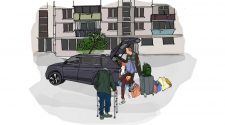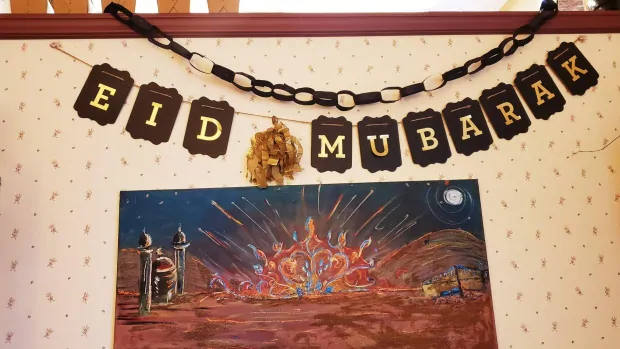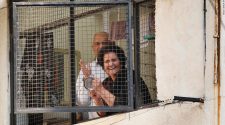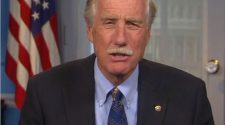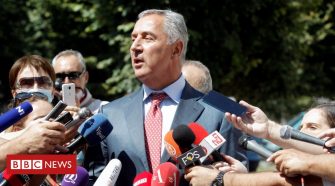Muslims in Manitoba are wishing each other Eid Mubarak a little differently this holiday during the COVID-19 pandemic.
Eid al-Fitr begins this Saturday at sunset on the first sighting of the crescent moon to mark the end of a 30-day long fast for Ramadan — in which observers abstain from food and drink daily from dawn until sunset — like no other for many people connecting with their faith and traditional culture.
Chair of the Manitoba Islamic Association Idris Elbakri said the three-day festival of feasting and praying together will be “very different” for at least 25,000 Muslims living across the province who are breaking the fast, from Winnipeg to Brandon, Winkler, Altona, Thompson and elsewhere.
Typically, thousands of people crowd into Winnipeg’s RBC Convention Centre for a massive prayer session on Sunday morning, followed by what Elbakri called a “quintessential Canadian multicultural hug fest” that involves people exchanging greetings and gifts in person.
“Our community has some some unique practices that I think make it more vulnerable, so when we when we actually worship we wish to close ranks we can line up one next to the other, we do prostrate down on carpets,” he said.
“That’s not happening because of the pandemic,” Elbakri said, adding many Muslims will miss that “sense of community” the tradition normally brings.
“These are very deeply embedded traditions, and we really don’t want to put anybody’s health at risk,” he said.
“Preserving peoples’ lives and their health is a religious obligation. It’s a spiritual endeavour as well, and I think in these circumstances that takes precedence over our emotional need to celebrate at this time which hopefully we get to do some other time in the future.”
Elbakri understands how difficult it can be to do things differently, and the desire to celebrate with friends and family, as he requests the masses follow the provincial public health guidelines and avoid large congregations to prevent the spread of the novel coronavirus.
The province’s last-minute announcement to increase public gatherings — from 10 to 25 people inside and 50 people outside — did not affect the organization’s plans, he said.
Elbakri is encouraging people to join the Winnipeg Grand Mosque’s live streaming of Sunday’s sermon on the Islamic group’s Facebook and YouTube channels.
Breaking tradition
The holiday is “bittersweet” this year for community member Alia Harb, who is looking forward to seeing friends and family at prayer “when that’s possible,” she said.
“We, in a lot of ways, have such a wonderful month of connecting with ourselves and with our families, but also in spirituality. So marking the end of this month-long fast and prayer is, we’re sad to see it go, but we’re also celebratory that we made it this far.”
In the meantime, Harb is baking traditional semolina date cookies, macaroons and shortbread, much like every other year. Her family will go ahead and lay out their best clothes for Sunday, like they usually would for the holiday, although this time around they will not be congregating to pray, greet each other with hugs or eat together as a big group.
The celebrations have changed, she said, although the same message still holds strong and much of the religious practices that are done on at a personal level on an individual basis, such as reconnecting with yourself, your faith and the story of Islam by praying and reading the Qur’an, have not changed.
The disconnection due to the pandemic has made people re-imagine communities and re-invent traditions while keeping a physical distance from each other.
“It forced our families to be more social with one another, not that we weren’t in the beginning but it made us look for creative ways to be more connected together,” Harb said, “a lot more connected in a weird way, right, connected while we’re socially distancing.”

